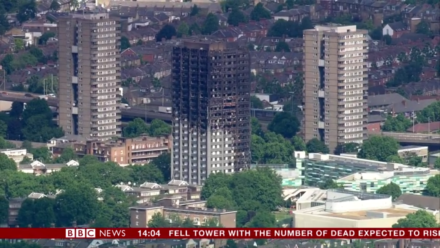
The Grenfell Inquiry opened recently with powerful tributes from the loved ones of those who lost their lives in the fire. Those commemorative portraits ensured that the real lives behind the disaster headlines were placed at the very heart of the inquiry from the start. That was an appropriate way to begin this search for the truth because it is was a poignant statement of who this inquiry needs to serve.
As we mark the first anniversary of the Grenfell fire, it is essential that the inquiry delivers justice for the survivors and bereaved families. That means uncovering the truth, holding those responsible to account and ensuring that it can never happen again.
This week the inquiry took another step on what must be the path to justice with hearings taking evidence from affected parties. I attended the inquiry and heard from some of the lawyers representing the survivors and bereaved families.
Since its inception last year, it has been necessary for further demands to be made of the Grenfell Inquiry process. For example, survivors and bereaved families were forced to launch a public petition – later backed by over 150,000 members of the public – for an independent and impartial decision-making panel to oversee the inquiry alongside the appointed judge. There was such a panel in the ground-breaking inquiry into the death of Stephen Lawrence.
That demand from the community was about trust. Justice requires the inquiry to constantly do all it can to earn the trust of those tragically affected. Justice should be an absolute right and so it was unacceptable that survivors and the bereaved had to hold marches, rallies and petitions to get their demand met. However, as a result of their tenacious efforts, the Prime Minister announced she would partially meet one of the petition’s demands by appointing two additional panel members.
But there are still outstanding demands from that public petition, such as the rights of the legal representatives of bereaved families to have all evidence disclosed to them from the start and be allowed to question witnesses at the hearings.
At the hearing I attended, other ongoing concerns with the inquiry were raised. I heard a powerful case for changes to the terms of reference to include whether the treatment of residents and survivors, based on their race, religion and social class played any part in the events that led to the fire. This is an entirely just request and something that the Prime Minister could – and should – ensure is delivered under the powers she has under 2005 Inquiries Act. Baroness Doreen Lawrence, the mother of Stephen Lawrence and a prominent human rights campaigner, recently spoke of how “race and class play an undeniable part” in the events around both the Grenfell fire and the murder of her son.
As I left the inquiry, the front page of the Evening Standard was warning that “silence of Grenfell firms puts more lives in danger”. Earlier that day, lawyers had explained how a number of firms involved in refurbishing Grenfell Tower have showed “no desire to assist the inquiry” and that this silence “deprives the families of the degree of resolution and understanding to which they are entitled and has only served to increase their pain and uncertainty”.
That is why the Prime Minister should now enact the Hillsborough Law. The families of those who died in the Hillsborough disaster spent decades fighting for justice. They have called for a Hillsborough Law as part of a lasting legacy to prevent other families having to go through the same. Such a law would codify duties on public authorities and officials, as well as on private entities that are public-facing such as those engaged in social housing.
A Bill was presented to parliament last year, led by Andy Burnham and others with broad cross-party support. It passed its first reading without opposition, but could not proceed due to the general election. I later wrote to the Prime Minister, along with Shadow Home Secretary Diane Abbott and over 90 MPs, calling for the government to give it time in this parliament. The Prime Minister should now do so. If she proposes this, it will attract the support of MPs from all parties to ensure that it becomes law.
Far too often after disasters in this country, institutional defensiveness and a culture of denial have appeared to prevail over the need to deliver truth and justice. That can’t ever be allowed to happen again. Ensuring that the truth is uncovered is a vital first step in ensuring justice for Grenfell.
Richard Burgon is Shadow Justice Secretary and MP for Leeds East.




More from LabourList
Almost half of Labour members oppose plans to restrict jury trials, poll finds
‘How Labour can finally fix Britain’s 5G problem’
‘The University of the Air – celebrating 60 years of Harold Wilson and Jennie Lee’s vision’